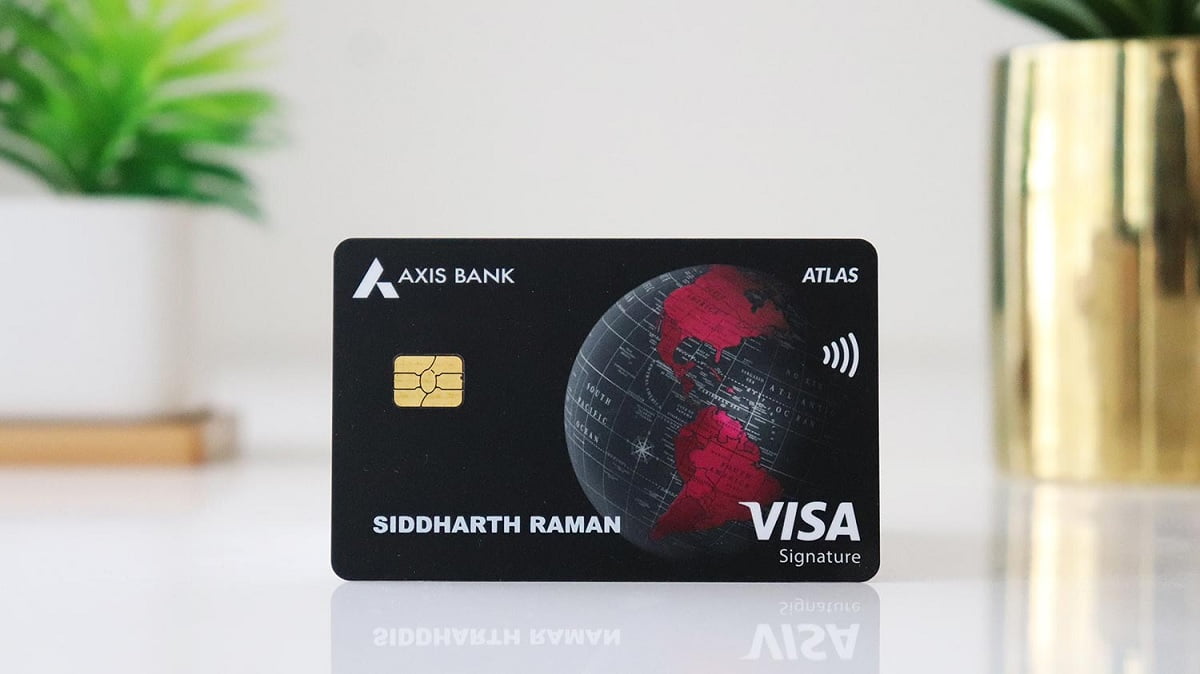Ritz-Carlton Credit Card Reviews 2026

The Ritz-Carlton credit card is an exclusive luxury travel rewards card issued by JPMorgan Chase. With a $450 annual fee, the card provides cardholders with premium travel benefits, hotel perks, and concierge services when staying at Ritz-Carlton hotels. In this comprehensive review, we’ll dive into the pros and cons, benefits, and whether the Ritz-Carlton credit card is worth getting.
An Overview of Ritz-Carlton Credit Cards
The Ritz-Carlton credit card comes in two variants – the Ritz-Carlton Rewards Credit Card and the Premium Ritz-Carlton Credit Card. Both cards provide the ability to earn and redeem points on Ritz-Carlton hotel stays and offer luxury benefits.
The key differences are:
- The Ritz-Carlton Rewards Credit Card has a $450 annual fee and provides a $100 annual hotel credit and Gold Elite status.
- The Premium Ritz-Carlton Credit Card has a $550 annual fee and provides a $300 annual hotel credit and Platinum Elite status.
Both cards are issued as Visa Infinite cards and come with features like airport lounge access, travel insurance, and concierge services. We’ll take a deeper look at the benefits and perks later in this review.
Ritz-Carlton Credit Card Benefits and Features
Here are some of the main benefits of the Ritz-Carlton credit cards:
- Earn points on purchases: Cardholders earn 5 points per $1 spent at Ritz-Carlton hotels, 2 points per $1 on airline tickets purchased directly with the airline, and 1 point per $1 on other purchases.
- Redeem points for free nights: Points can be redeemed for free nights at Ritz-Carlton hotels with no blackout dates. Redemptions start at 70,000 points per night.
- Annual Hotel Credit: $ 100 credit on the Rewards card and $300 credit on the Premium card to use at Ritz-Carlton hotels.
- Elite Status: Automatic Gold Elite (Rewards card) or Platinum Elite (Premium card) status in the Ritz-Carlton Rewards loyalty program. Enjoy perks like room upgrades, late checkout, and bonus points.
- Airport Lounge Access: Gain complimentary access to Priority Pass Select airport lounges worldwide. Guests are allowed with the Premium card only.
- Credits for Luxury Experiences: Cardholders get varying credits towards dining, spa, and resort activities at Ritz-Carlton hotels. The Premium card also offers private jet and cruise privileges.
- Travel and Shopping Insurance and Protections: Includes rental car insurance, trip delay reimbursement, purchase protection, and extended warranty.
- Visa Concierge: Get help booking dining reservations, event tickets, arranging travel, and more 24/7.
- No Foreign Transaction Fees: Use the card overseas without extra charges.
For frequent and luxury travelers, the Ritz-Carlton cards provide a wealth of premium benefits and experiences. However, the high annual fees mean these cards provide the most value for those who stay at Ritz-Carlton properties regularly.
How the Ritz-Carlton Card Compares to Other Luxury Travel Cards
The Ritz-Carlton card occupies a niche within the luxury travel credit card market. Its benefits focus heavily on the Ritz-Carlton brand. Here’s how it compares to some other top luxury cards:
The Platinum Card from American Express has a higher $695 annual fee but more airport lounge access and statement credits. Better for airline purchases and general travel spending.
Chase Sapphire Reserve – Lower $550 annual fee. More flexible rewards programs and travel protections. Lacks Ritz-Carlton-focused perks.
Hilton Honors American Express Aspire Card – Shares a similar focus on Hilton hotels. Lower $450 annual fee but fewer rewards on non-Hilton spending.
Marriott Bonvoy Brilliant Card – Comparable for Marriott loyalists with a $450 annual fee. Also offers Bonvoy elite status and credits.
The Ritz-Carlton card is most rewarding for those who visit Ritz-Carlton hotels regularly each year to maximize the annual hotel credits, points earnings, and on-property perks. For more general luxury travel, the Amex Platinum or Chase Sapphire Reserve tends to provide better overall flexibility and travel benefits.
The Pros of the Ritz-Carlton Credit Card
Here are some of the main advantages of the Ritz-Carlton credit card:
- Generous points earning and redemptions at Ritz-Carlton hotels
- Luxury hotel elite status
- Valuable annual hotel credits to offset the annual fee
- Airport lounge access worldwide
- An array of credits for on-property dining, spa, etc
- Visa Infinite benefits like rental car coverage
- Excellent for Ritz-Carlton loyalists who visit often
The combination of a big sign-up bonus, high points earnings rates, and annual hotel credits mmakesthe Ritz-Carlton card worth it for frequent guests. Even occasional Ritz-Carlton visitors can extract a lot of value from this card.
The Cons of the Ritz-Carlton Credit Card
Here are some potential downsides to consider:
- Very high annual fee of $450+
- Points are only valuable for Ritz-Carlton hotel redemptions
- Many perks are exclusively for stays at Ritz-Carlton hotels
- Airport lounge access doesn’t include guests for the Rewards card
- Not as rewarding for non-Ritz-Carlton purchases and hotel stays
For those who only occasionally visit the Ritz-Carlton, the value may be harder to realize against the high annual fee. And if you stay at other luxury chains more often, cards like the Amex Platinum could make more sense. There are also no bonus categories to earn extra points on dining, airfare, or other purchases.
Ritz-Carlton Credit Card Alternatives
As a premium travel rewards credit card, there are several alternatives to consider:
Chase Sapphire Reserve – More flexible redemption options, airport lounge access for authorized users, and a similar annual travel credit.
The Platinum Card from American Express has a higher annual fee but more lounge access, airline fee credits, and credits for Uber, Saks Fifth Avenue, etc.
Citi Prestige Card – Comparable lounge access and annual hotel credit, but fewer luxury benefits and higher annual fees.
Hilton Honors American Express Aspire Card – Good alternative for Hilton loyalists with similar annual credits and elite status.
Marriott Bonvoy Brilliant Card – Also provides elite status and annual credit for Marriott regulars.
The Ritz-Carlton card makes the most sense for those who will visit Ritz-Carlton hotels enough times annually to offset the high annual fee. For more generalized travel rewards and perks, the Chase Sapphire Reserve or Amex Platinum is preferable overall.
Is the Ritz-Carlton Credit Card Worth It?
The Ritz-Carlton credit card is worth considering for individuals who:
- Stay at Ritz-Carlton properties frequently every year
- Can maximize the annual hotel credit and on-property dining/spa credits
- Will utilize the Airline Lounge access privilege
- Value automatic Ritz-Carlton elite status
- Appreciate special access to Ritz-Carlton hotel events and experiences
For these card members, the Ritz-Carlton credit card can provide outstanding value and is well worth the high annual fee. However, it may be hard to justify for infrequent Ritz-Carlton guests or those with general luxury travel needs. The rewards are very concentrated on Ritz-Carlton stays.
For anyone committed to the Ritz-Carlton brand and visiting their properties often, the credit card will unlock exceptional benefits, service, and experiences that enhance every stay. Before applying, think about your Ritz-Carlton plans for the next year and whether you can maximize the perks and privileges.
Frequently Asked Questions (FAQ)
Here are answers to some commonly asked questions about the Ritz-Carlton credit card:
Q. What credit score is needed for the Ritz-Carlton credit card?
You will typically need an excellent credit score in the 700s to be approved. This reflects the premium status of the card. Having an existing relationship with Chase Bank can also improve your approval odds.
Q. What types of purchases earn bonus points with the Ritz-Carlton card?
You’ll earn an industry-leading 5 points per dollar spent at Ritz-Carlton hotels, 2 points per dollar on airline tickets purchased directly with the airline, and 1 point per dollar on all other purchases.
Q. Can Ritz-Carlton free night certificates be used at Tier 1-4 hotels?
Yes, free night certificates earned from the card’s anniversary night benefit or by reaching Milestone Awards thresholds can be used at Ritz-Carlton hotels in all reward categories, including top-tier hotels.
Q. Is there an authorized user fee for the Ritz-Carlton credit card?
No, there is no fee to add authorized users to your account. However, only the primary cardholder receives benefits like the annual hotel credits and airline lounge access.
Q. Can I pool and combine Ritz-Carlton credit card points with Ritz-Carlton points earned from stays?
Yes, you can freely combine Ritz-Carlton points earned from the credit card with points earned through hotel stays and elite status in your Rewards program account. The points balance and redemption options are unified.
Q. Does the airline credit for incidental fees apply to any airline?
Yes, the annual airline incidental fee credit on the Premium card works for any passenger airline. The credit is applied automatically for your first eligible purchase with an airline each year.
Conclusion
The Ritz-Carlton credit card provides outstanding rewards and luxury perks for brand loyalists who frequent these upscale hotels. The high annual fee is justified through hotel credits, points earnings, and on-property benefits that give you the VIP experience at Ritz-Carlton destinations worldwide.
While the card is less rewarding for general travel spending, the premium benefits for Ritz-Carlton guests are hard to beat. For frequent Ritz-Carlton visitors to maximize these annual perks year after year, the Ritz-Carlton credit card is one of the top hotel co-branded cards available.



